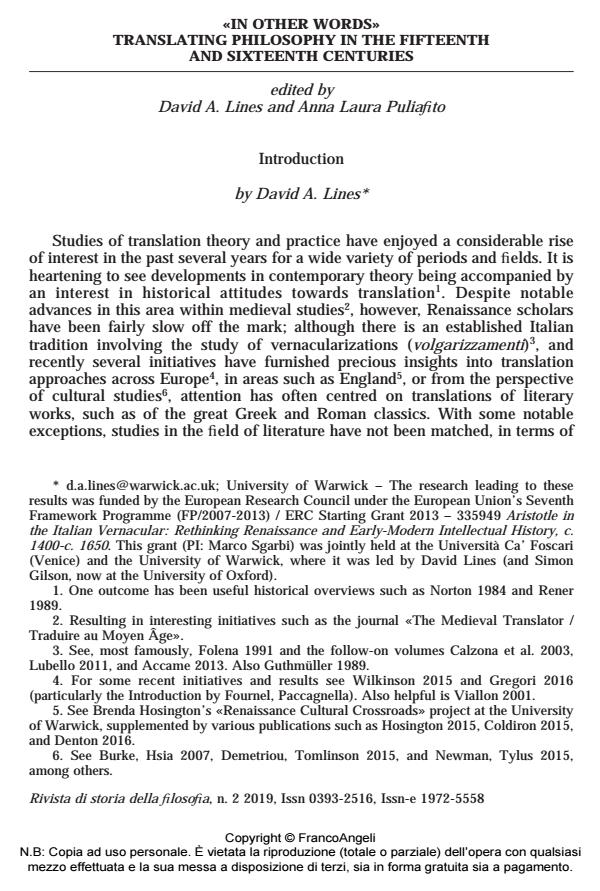«In other words» translating philosophy in the fifteenth and sixteenth centuries. Introduction
Journal title RIVISTA DI STORIA DELLA FILOSOFIA
Author/s David A. Lines, Anna Laura Puliafito
Publishing Year 2019 Issue 2019/2
Language English Pages 12 P. 181-192 File size 64 KB
DOI 10.3280/SF2019-002001
DOI is like a bar code for intellectual property: to have more infomation
click here

FrancoAngeli is member of Publishers International Linking Association, Inc (PILA), a not-for-profit association which run the CrossRef service enabling links to and from online scholarly content.
- Alessandro Piccolomini’s Early Astronomical Works: I. An Exploration of Their Cultural Significance Kristen Lippincott, pp.23 (ISBN:978-3-031-56785-8)
- Encyclopedia of Renaissance Philosophy David A. Lines, pp.1147 (ISBN:978-3-319-14168-8)
- Handbuch Übersetzen in der Frühen Neuzeit Cecilia Muratori, pp.1 (ISBN:978-3-662-68654-6)
- Encyclopedia of Renaissance Philosophy David A. Lines, pp.1 (ISBN:978-3-319-02848-4)
- Encyclopedia of Renaissance Philosophy Alessio Cotugno, pp.2551 (ISBN:978-3-319-14168-8)
- Encyclopedia of Renaissance Philosophy Alessio Cotugno, pp.1 (ISBN:978-3-319-02848-4)
David A. Lines, Anna Laura Puliafito, «In other words» translating philosophy in the fifteenth and sixteenth centuries. Introduction in "RIVISTA DI STORIA DELLA FILOSOFIA" 2/2019, pp 181-192, DOI: 10.3280/SF2019-002001